How many calories does cycling really burn? And how important is counting them anyway?
We all want to know how many calories we burn while cycling, but while it's easy to make an estimate, it's hard to get an accurate figure. We explore common questions around cycling and calorie burn
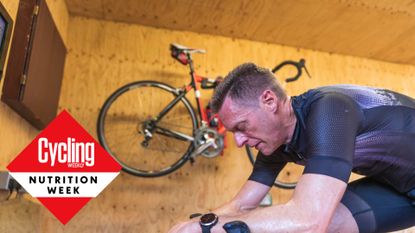

It’s a question we’ve all pondered: how many calories do I burn riding a bike? You can find quick and easy-to-apply equations to the number of calories burned cycling – but alas, life is rarely that simple. Even GPS devices and the best cycling apps, though useful, can't guarantee an accurate figure.
Estimated calories burned cycling
Let's start with the estimates, which are typically based on your weight and the speed you ride. Easy as pie (literally) – here's how they can stack up.
| Rider weight | Average riding speed | estimated calories burnt per hour |
| 55kg | 13mph/21kph | 440kcal/hour |
| 55kg | 15mph/24kph | 550kcal/hour |
| 55kg | 18mph/29kph | 660kcal/hour |
| 75kg | 13mph/21kph | 600kcal/hour |
| 75kg | 15mph/24kph | 750kcal/hour |
| 75kg | 18mph/29kph | 900kcal/hour |
| 90kg | 13mph/21kph | 720kcal/hour |
| 90kg | 15mph/24kph | 900kcal/hour |
| 90kg | 18mph/29kph | 1080kcal/hour |
Unfortunately, using online calorie calculators is liable to misestimate, possibly by as much as 20 per cent, depending on your course. Unlike the runner, whose energy expenditure is more easily predicted, we cyclists fall prey to a whole host of variables. First and most - obviously - we have wheels: while freewheeling downhill, we’re burning minimal energy.
Aerodynamics is the next-biggest factor - and not just wind direction or speed. The bigger your frontal surface area, the greater your aerodynamic drag. If you have a large body, an upright riding position and flappy clothes, you’re going to need more energy just to cut through the air, especially compared to a whippet-thin rider in tight Lycra whose weight is concentrated in their legs.
Other factors affecting calorie expenditure include rolling resistance - width of tires, road surface - and weight (combined with gravity). When it comes to the latter, remember it's the total overall climb or fall that matters: we like to forget that, in terms of energy, those tough climbs are somewhat offset by the descents.
Diet, too, needs a mention here. Despite the onslaught of fad diets and related pseudo-science, weight loss is still a simple matter of calories in versus calories out, but that doesn’t mean you can eat whatever you like. The type and quality of food you eat can affect how quickly and efficiently you turn fuel into forward motion. Ride hard and you’ll burn mostly carbohydrate, whereas at an easier pace you’ll burn a higher proportion of fat - all of which is explained in more detail below.
How important is calorie counting for cyclists?
The question as to whether all calories are equal has been hotly debated by scientists for many years, and has proved to be a controversial topic. Some believe that no calories are alike, and that provided you choose the source of your calories carefully, then you can lose weight without having to count up your intake.
Get The Leadout Newsletter
The latest race content, interviews, features, reviews and expert buying guides, direct to your inbox!
Others believe that a calorie is a calorie no matter where it comes from: to lose weight people simply need to eat less and move more.
“There’s no doubt that energy (calorie) balance - represented as calories in versus calories out - matters when it comes to weight loss,” explains Dr James Betts, associate professor in nutrition and metabolism at the University of Bath. “Long-term changes in mass are generally proportionate over time to the net balance between energy in and out.”
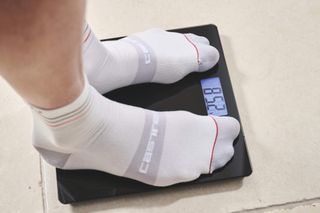
Indeed, studies using rigorous standards have consistently shown that when people create a calorie deficit, they lose weight. Conversely, when people eat more calories than they need, they gain weight.
“To lose weight, you need to be in a state of negative energy balance,” clarifies exercise physiologist and nutritionist Dr Scott Robinson (guruperformance.com).
An alternative take...
But can eating ‘good’ calories instead of ‘bad’ calories help you lose weight? Some people claim that you can lose weight without a calorie deficit.
Further, they claim you can lose more weight on the same calorie deficit by avoiding carbohydrate, i.e. calories from carbs are ‘bad’ as they can be turned into body fat more readily than ‘good’ calories from protein or fat.
Their argument comes from studies that show greater weight losses from low-carb diets compared to high-carb diets, despite the participants claiming to eat the same calories.
However, when you look more closely, these studies were conducted under ‘free-living conditions’ which means participants were free to choose what and how much they ate. By excluding carbs, the low-carbohydrate dieters ended up eating more protein.
When people eat more protein, they feel fuller and eat fewer calories without realising it. So, the participants’ greater weight loss can be explained by their lower calorie intake (not directly the type of calories).
In studies where calories were more rigorously controlled, there is little or no difference in weight loss between high- and low-carbohydrate diets.
Also, in longer-term studies lasting longer than six months, adherence falls and people on high-carb or low-carb diets lose about the same amount of weight. The bottom line is that calories do count: you cannot lose weight eating ‘good’ calories if you don’t create a calorie deficit.
A calorie’s a calorie... isn’t it?
Does the body respond differently to calories from different nutrients?
“By definition, a calorie is a calorie in terms of the energy it delivers,” says Robinson. “However, there is a difference in the way calories from different macronutrients (proteins, carbohydrate and fat) are absorbed and metabolised by the body.”
Some of the calories you consume are used up digesting and processing the food and turning it into accessible fuel. This is called the thermic effect of food (TEF). Protein has a much higher TEF than the other macronutrients, equating to 25–30 per cent of total calories.
Thus, if you eat 100 calories of protein, 25-30 of these calories will be lost as heat, and only about 70-75 will be absorbed.
In contrast, eight to 12 per cent of the calories consumed in the form of carbs and two to three per cent of the calories in fat are used up in digesting it.
“The precise magnitude varies depending on various factors, some known, some unknown,” says Betts.
“You also need to consider the effects the different macronutrients have on satiety, or how full up they make you feel,” explains Robinson. “Protein has a higher satiating effect than carbohydrate or fat, so it can help you maintain a negative energy balance.”
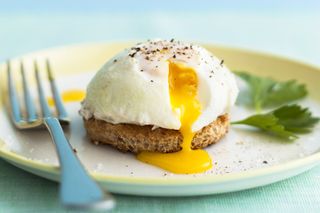
In other words, consuming foods high in protein (such as eggs, fish or milk) will help keep you feeling full longer, whereas snacking on, say, a packet of crisps will stave off hunger far less effectively.
This also explains why high-protein, low-carbohydrate diets may produce greater weight loss (at least in the short term) compared to other diets: protein makes you feel less hungry so you spontaneously eat less.
So, let’s get this straight: if you overeat 300kcal in carbs, will you put on the same amount of weight as you would have had you over-eaten 300kcals of protein? Anything that tips you into positive energy balance will result in weight gain. However, when you overeat carbohydrate or protein, some of the calories are used for heat production (DIT).
Overfeeding studies at the University of Colorado Health Sciences Centre, US, have shown that when people overeat carbohydrate they burn more carbohydrate (converting it to heat), and only about 75-85 per cent of the excess calories are stored as fat. On the other hand, when they overeat fat, 90-95 per cent of the extra calories get stored as fat.
“This happens because we have a limitless capacity to store fat, whereas our capacity for carbohydrate storage is small and limited,” clarifies Betts.
For cyclists who regularly deplete their glycogen stores, it’s even harder to accumulate fat mass from excess carbs. When you eat carbohydrate, it is burned in preference to other fuels and stored as glycogen before it’s converted into fat.
A landmark study at the University of Lausanne in 1988 found that carbs are converted to fat (‘de novo lipogenesis’) only when your glycogen stores are full and when you are in positive energy balance. In this experiment, participants ate 5,000kcal and 1,000g carbs a day for five days.
They didn’t gain as much body fat as predicted; instead, much of the excess carbohydrate was used to fuel normal metabolism (they stopped burning all other fuels). The more carbs they ate, the greater their energy expenditure. In essence, your body has a degree of metabolic flexibility and is able to use more of the fuel most readily available to it.
The power of protein
Similarly, overeating protein results in less fat gain than overeating fat. Research at Nova South-eastern University, Florida published in 2014, found that resistance-trained athletes who consumed 800 extra calories of protein a day (mostly from protein-loaded recovery drinks, averaging 4.4g/kg/day which is more than five times the recommended daily intake) for eight weeks didn’t gain fat weight, as would be expected.
Theoretically, they should have put on somewhere in the region of five to six kilos.
It seems, then, that surplus calories from carbohydrate or protein are less readily converted to body fat than fat calories. “The take-home message seems to be that if you intend to overeat, it’s better the extra calories come from protein - or carbohydrate - than fat,” says Robinson.
Is it worth counting calories?
“I don’t ask my clients to count calories - I give them portion guidelines and tailor that according to their activity. Your overall goal should be to consume balanced meals,” says Robinson.
Tracking your calories using apps can be useful to make you more aware of what you’re eating but it isn’t as accurate as we are led to believe.
“That’s because the numbers you see on food labels and databases are averages and don’t consider the energy required to digest those foods (TEF), which in a mixed diet accounts for around 10 per cent of the calories you consume, or the way food is prepared,” explains registered dietitian Lynne Garton (alimenta.co.uk).
What’s more, how you prepare food changes its calorie content. Cooking your food makes more of the calories available for absorption, as does chopping, blending, mashing, even chewing. Generally, more calories are absorbed from processed foods than unprocessed food.
Some calories pass through undigested. “In certain foods, such as nuts and seeds, some of the calories (macronutrients) are ‘locked up’ in the food matrix and cannot be digested by gut enzymes,” adds Garton. Recently, US researchers have found that we absorb fewer calories from nuts and seeds than previously thought.
For example, almonds have been shown to contain 129kcal per 28g serving, 20 per cent fewer calories than previously estimated.
Even the bacteria in our gut can increase or decrease the calories we absorb. People with a higher proportion of firmicutes bacteria absorb an average of 150 calories more per day than those with a higher proportion of bacteroidetes.
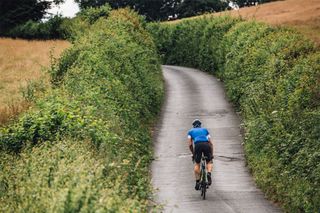
Down to the individual
There are numerous factors that affect how many calories you burn during exercise and at rest: your weight, body composition (muscle burns calories, fat doesn’t), your genes, how much brown fat (fat tissue containing more mitochondria) you possess, sleep and hormones; all affect metabolic rate.
“There is a huge difference between individuals in how many calories they expend,” notes Betts.
“Physical activity is the factor that has the greatest impact, as you can expend large amounts of energy by moving around doing exercise and/or simply living an active lifestyle - or alternatively you can spend very few calories by staying still and living a sedentary life.”
So, are all calories equal? Yes and no. A calorie is a calorie from a thermodynamic point of view because the human body (like everything else) cannot create or destroy energy, only convert from one form to another.
But in terms of different macronutrients and the effects they have on the body, all calories are not equal.
Different foods have different effects on the body. If you want to lose weight, you need to focus not solely on the number of calories you’re eating but also the source of those calories, your activity level, body composition and all the other factors discussed above.
Calories burned cycling and weight loss: the essential points
- To lose weight, you need to create a calorie deficit.
- The notion that some calories are ‘good’ while others are ‘bad’ is misleading.
- It’s easier to achieve a calorie deficit if you consume adequate protein (which reduces hunger) and minimise highly processed calorie-dense foods (which increase hunger). Cooking from scratch using healthy recipes will help you monitor where your calories are coming from.
- The amount of energy you get from food depends where those calories come from — it takes more energy to digest and process protein than carbohydrate, which requires more energy than fat.
- Protein has a higher satiating effect than carbohydrate or fat.
- You are less likely to gain fat eating extra protein or carbohydrate compared with fat. However, this isn’t a licence to eat as much as you want.
- Calorie counting is not an exact science - don’t attach too much precision to values on food labels.
- Don’t put too much faith in calorie tracking - accuracy of most popular fitness trackers vary ±20 per cent over 24 hours and among different individuals.
- For most cyclists trying to lose weight, cutting calories by a conservative 15-20 per cent will help increase fat loss and minimise protein loss.
This article was previously published on Cycling Weekly's website

Thank you for reading 20 articles this month* Join now for unlimited access
Enjoy your first month for just £1 / $1 / €1
*Read 5 free articles per month without a subscription

Join now for unlimited access
Try first month for just £1 / $1 / €1

I’ve been hooked on bikes ever since the age of 12 and my first lap of the Hillingdon Cycle Circuit in the bright yellow kit of the Hillingdon Slipstreamers. For a time, my cycling life centred around racing road and track.
But that’s since broadened to include multiday two-wheeled, one-sleeping-bag adventures over whatever terrain I happen to meet - with a two-week bikepacking trip from Budapest into the mountains of Slovakia being just the latest.
I still enjoy lining up on a start line, though, racing the British Gravel Championships and finding myself on the podium at the enduro-style gravel event, Gritfest in 2022.
Height: 177cm
Weight: 60–63kg
-
 Hire and hire: Bike rental schemes hit record numbers in the UK, almost topping 25 million rides
Hire and hire: Bike rental schemes hit record numbers in the UK, almost topping 25 million ridesAn average of 67,565 rides were taken a day between September 2022 and September 2023, an increase of 24%
By Adam Becket Published
-
 Egan Bernal says he has regained his pre-crash form, but others have improved
Egan Bernal says he has regained his pre-crash form, but others have improvedColombian, who suffered traumatic training accident in 2022, aiming for return to Tour de France
By James Shrubsall Published
-
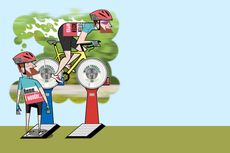 How to lose weight cycling without sacrificing strength
How to lose weight cycling without sacrificing strengthIf you're looking to lose weight cycling, here is a quick guide to reduce that number on the scales to improve your riding
By Dr Eimear Dolan Published
-
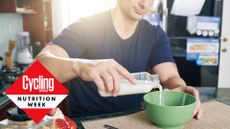 Six foods to avoid before a bike ride and why
Six foods to avoid before a bike ride and whyWe take a look at some of the staples you should steer clear of before heading out on a ride
By Anna Marie Abram Published
-
 Ask a coach: 'How much should I expect to eat on a 100-mile ride?'
Ask a coach: 'How much should I expect to eat on a 100-mile ride?'It's important to stay fuelled, but just how much food does that mean you should bring?
By James Spragg Published
-
 I lowered my body fat by 4.4% after using a nutrition app for 7 weeks
I lowered my body fat by 4.4% after using a nutrition app for 7 weeksCould a smartphone app be the key to hitting your nutritional needs and reaching your riding goals?
By Simon Fellows Published
-
 It’s ‘Nutrition Week’ on Cycling Weekly - here’s how to ensure you’re optimally fuelled to hit your riding goals
It’s ‘Nutrition Week’ on Cycling Weekly - here’s how to ensure you’re optimally fuelled to hit your riding goalsFrom the 24th-28th July here at Cycling Weekly, we’ll be doing our bit to provide you with tips on how to what you need nutrition-wise, and where to get it
By Anna Marie Abram Published
-
 Bonk-proof your fuelling: what’s really going on to cause you to ‘bonk’ and how to avoid it
Bonk-proof your fuelling: what’s really going on to cause you to ‘bonk’ and how to avoid itShaken by a personal experience of that dreaded running on-empty feeling, Anita Bean goes in search of fuelling experts to find out what ‘bonking’ really means and how to avoid it
By Anita Bean Published
-
 The best food for endurance cycling - here’s what to eat and drink before, during and after
The best food for endurance cycling - here’s what to eat and drink before, during and afterWhat to eat before, during and after endurance rides to avoid ‘bonking’ and maximise your cycling fitness gains
By Andy Turner Last updated
-
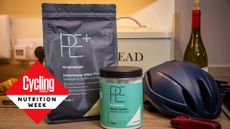 How much protein do cyclists need? Nail your recovery with this guide
How much protein do cyclists need? Nail your recovery with this guideConfused about how much protein you need, where to get it from and when to take it? We've got the answers for meat-eaters, vegans and vegetarians alike…
By Charlotte Broughton Last updated